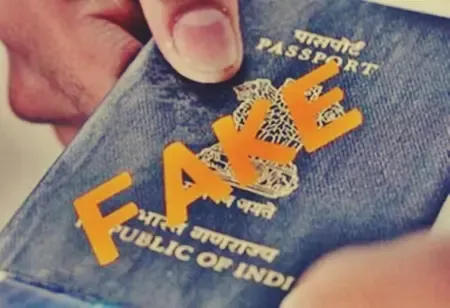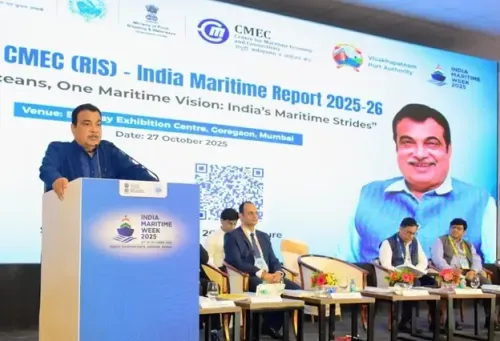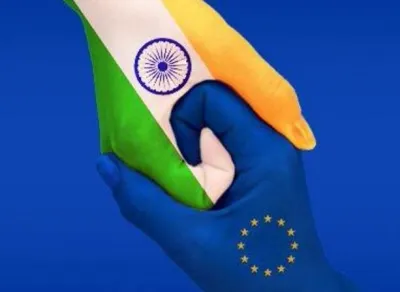Funds from Bengal Passport Fraud Routed to Bangladesh via Hawala, ED Discovers

Synopsis
Key Takeaways
- ED investigates money laundering in passport scam.
- Funds routed to Bangladesh via Hawala.
- Two-layered funding process identified.
- Arrests include key suspects from both India and Bangladesh.
- Link to fundamentalist groups suspected.
Kolkata, April 19 (NationPress) The Enforcement Directorate (ED), which initiated an investigation into the money laundering aspects of the West Bengal fake passport scheme last week, has uncovered specific evidence indicating that the proceeds from this scam were sent to Bangladesh using the Hawala method.
Sources close to the investigation reveal that the flow of cash, primarily in hard currency, suggests that while the scam was mainly conducted from West Bengal, its reach extended significantly into Bangladesh, especially in districts adjacent to India.
Investigators have traced a dual-layered flow of funds into the operation, which included facilitating the illegal entry of Bangladeshi citizens into India and providing them with forged Indian identity documentation.
In the first layer, payments ranging from Rs 1.5 lakh to Rs 2 lakh were made to manage unlawful cross-border movements, offering temporary accommodations in West Bengal villages close to the international border, and acquiring initial fake identity documents like birth certificates, ration cards, PAN cards, voter IDs (EPIC), and Aadhaar cards.
The second layer involved transactions between Rs 75,000 and Rs 1 lakh for obtaining forged Indian passports, utilizing the previously generated fake documents as supporting proof.
Officials from the ED are convinced that a significant amount of money generated from these illicit activities was ultimately redirected back to Bangladesh through the Hawala network—ironically, to the very country from which the infiltrators hailed.
This financial pathway has sparked concerns that the scam may be connected to fundamentalist groups operating in Bangladesh, hinting at a more extensive and intricate network.
Recently, two primary suspects—Indian national Alok Nath and Bangladeshi Azad Mullick—were apprehended in various locations across West Bengal. Mullick, who operated the Mullick Trading Corporation, had secured forged Indian identity documents, including a passport, and was allegedly managing a Hawala syndicate from his residence in Kolkata.
Last month, the Kolkata Police submitted a chargesheet in a lower court regarding the counterfeit passport case, naming 130 individuals, with 120 being Bangladeshi nationals and the rest Indian.
While the Bangladeshi nationals are accused of paying substantial amounts for fake Indian passports, the Indian nationals are implicated in facilitating the generation of fraudulent identity documents.









